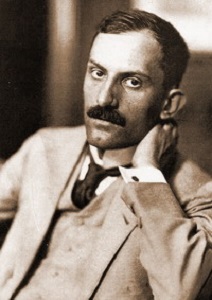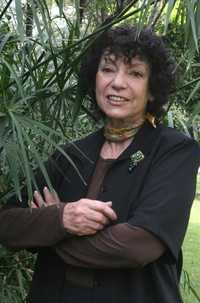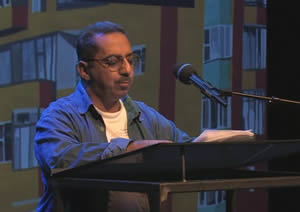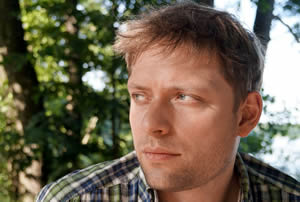De Hongaarse dichter, schrijver en vertaler Mihály Babits werd geboren op 26 november 1883 in Szekszárd. Hij studeerde Franse en Latijnse filologie aan de Loránd Eötvös-universiteit te Boedapest van 1901 tot 1905, waar hij Dezső Kosztolányi en Gyula Juhász ontmoette. Hij werd leraar en gaf les aan scholen in Baja (1905-1906), Szeged (1906–1908), Fogaras (1908 -1911), Újpest (1911) en Boedapest (1912 -1918).In 1908 verwief hij met zijn gedichten bekendheid. In datzelfde jaar reisde hij naar Italië, wat zijn interesse voor Dante Alighieri verklaart; later bezocht hij het land nog meerdere malen. Met zijn verworven kennis vertaalde hij Dantes Divina Commedia (Inferno, 1913, Purgatorium, 1920, en Paradiso, 1923).Kort na de Hongaarse Revolutie van 1919 werd hij professor Buitenlandse Literatuur en Moderne Hongaarse Literatuur aan de Eötvös Loránd Universiteit te Boedapest, maar hij werd er bedankt voor zijn diensten na de val van de revolutionaire regering vanwege zijn pacifisme.In 1911 werd hij redacteur van het literaire magazine Nyugat.In 1921 huwde hij Ilona Tanner. Zij publiceerde later gedichten onder de naam ‘Sophie Török.Twee jaar later trok hij naar Esztergom. In 1927 werd hij lid van het Kisfaludy Társaság (Kisfaludy Gezelschap) In 1929 werd hij hoofdredacteur bij het tijdschrift “Nyugat”, een taak die hij deelde met Zsigmond Móricz. Babits is het meest bekend om zijn lyrische poëzie met invloeden van klassieke poëzie en Engelse rijmkunst. Behalve gedichten schreef hij ook essays en hij vertaalde veel werken uit het Engels, het Frans, het Duits, het Grieks, het Italiaans en het Latijn.
Jonah’s Prayer
Words have become unfaithful things to me,
or else am I an overflowing sea,
goalless and hesitant, without a shore.
Vain words, articulated once before,
I carry like dikes, or signposts made of wood,
torn hedges carried by a straying flood.
Oh if the Master only would provide
a bed for my brook’s current and thus guide
my steps on sheltered pathways toward the sea;
if only He would carve a rhyme for me,
a ready-made rhyme, I would avail myself,
for prosody, of the Bible on my shelf,
so that like Jonah, lazy servitor
of God, we hid from Him and later bore
not three brief days or months of agonies,
but three long years of even centuries,
when he went down into the living Fish,
in dark hot torments more than he would wish,
I too, before I disappear, might find
in an eternal Whale whose eyes are blind
my old accustomed voice, my words arrayed
in faultless battle order; as He made
His whispers clear, with all my poor throat’s might
I could speak out, unwearied till the night,
so long as Heaven and Nineveh comply
with my desire to speak and not to die.
The Lyric Poet’s Epilogue
I am the only hero of my verses,
the first and last in every line to dwell:
my poems hope to sing of Universes,
but never reach beyond my lonely cell.
Are others there outside, to bear the curses
of being born? If God would only tell.
A blind nut in the nutshell’s dark traverses,
I loathe to wait for Him to break the spell.
A magic circle binds me like a chain,
and yet, my soaring dreams defy the weight –
but wishful dreams, I know, may tell a lie.
A prison for myself I must remain,
the subject and the object. Heavy fate:
the alpha and the omega am I.

Mihály Babits (26 november 1883 – 4 augustus 1941)




